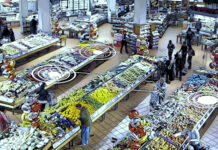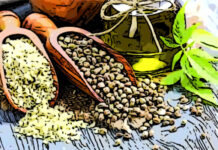MECH, Microbiome Endocannabinoids Center for Health, has developed an analysis protocol for quality verification of CBD crystals and solutions that contain them (or claim to contain them). Authenticity, purity, titration.
CBD, the dutiful attention
Among the various extracts of industrial hemp, CBD, cannabidiol, is the cannabinoid on which most attention has been focused so far. In research-which has so far led to more than 13,400 scientific publications-as well as on the international market, where demand for the extract continues to grow.
Among other things, this focus explains Big Pharma ‘s pressure on institutions, in Europe as well as in the U.S., to bring cannabinoids under its exclusive regime and control. (1) A hypothesis that on closer inspection has significance precisely in that–outside of pharma grade production,–operators are unable to guarantee product quality.
In fact, the increasing presence of low-priced CBD-in the Italian, European, and international markets-induces suspicion about the authenticity and genuineness of the numerous extracts. Faced with the real risk of fraud, MECH has developed an analysis protocol that could form the basis for an international standard to be submitted for accreditation.
Subsequent ring tests can then allow the alignment of the various testing laboratories to be verified. Indispensable where it is considered that many private laboratories have activated the service of analysis on cannabinoids (in extracts, titrated oils, inflorescences) but without referring to any standard, with obvious risks of unreliability.
The analysis protocol
The analysis protocol developed by MECH and Crabion Srl to assess the genuineness and quality of CBD crystals and products containing them contemplates three analytical verifications:
– molecule identification (by mass spectrometer),
– purity (by high-pressure liquid chromatography, HPLC),
– titration (with HPLC, High Peformance Liquid Chromatography), comparing with a certified reference standard of known titer.
The objectives of analysis are:
– distinguish authentic CBD, extracted from the plant, from synthetic CBD,
– verify the exact CBD content of certain organic derivation and characterize the possible non-cannabinoid component (still looking for a possible marker of recognizability).
Market survey
An initial market survey was performed by applying the analysis protocol to 10 samples of CBD for sale in the Italian market. A pharmaceutical standard, three samples of safe organic derivation-verified by MECH-and six of the most popular CBDs on the market (price ranging from 1,500 to 3,000 €/kg). (2)
Application of the analysis protocol mentioned above led to HPLC analysis with verification of both percentage calculation of chromatogram peak area and titration on the sample.
The result was surprising. At the same percentage area (always around 99 percent or so), CBD titration varied between 78 and 96 percent-on the three samples of definite organic origin-to values even below 50 percent in some of the other samples.
Research is now being directed on identifying the molecules/substances other than cannabidiol present in the various products.
Industrial hemp in Italy
The industrial hemp supply chain in Italy, as noted above, represents a great opportunity for value creation in agriculture and stimulate conversion to the organic system. Cannabis Sativa L. is in fact a fast-growing, naturally resilient plant whose cultivation does not require pesticides or fertilizers.
Each part of the plant can be used to make foods with distinctive nutritional properties-thanks to their richness in protein, dietary fiber and Omega 3 fatty acids-of particular interest to vegetarian and vegan consumers, among others.
In a circular economy logic, hemp is also used to produce food supplements drugs, bioplastics, materials for weaving and green building, and biomass.
Industrial hemp, research in Italy
MECH is a young research center that aggregates the experiences of some of the growers and processors of industrial hemp who have contributed to the revival of this industry in Italy. With not a few difficulties related to the uncertain implementation of Italian Law 242/16, dedicated precisely to the enhancement of the entire sector. (3)
The multidisciplinary team of researchers participating in MECH-over the years, including with contributions from the writer-has developed agronomic disciplines, production techniques and best practices. As well as having initiated a feasibility study on the application of a public blockchain system based on the Bitcoin protocol(Wiise Chain) to ensure authenticity, traceability, sustainability and quality of productions.
On the research front, MECH is currently focused on hemp extracts and extraction techniques, as well as on analyzing the correlations between the endocannabinoid system and the microbiome. In conjunction with other research centers, internationally, and the global industry confederation (
GlobeCann
). With a view to, among other things, aggregating the resources needed for the development of randomized clinical trials (RCTs, Randomized Clinical Trials).
Dario Dongo
Notes
(1) The European CBD saga, in a nutshell:
-CBD, stench in Brussels, https://www.greatitalianfoodtrade.it/mercati/canapa-alimentare-e-cosmetica-puzza-di-bruciato-a-bruxelles.
-Hemp in cosmetics, European Commission’s about-face, https://www.greatitalianfoodtrade.it/consum-attori/canapa-nei-cosmetici-la-commissione-fa-marcia-indietro-dopo-la-nostra-denuncia
-CBD, Big Pharma vs. everyone, https://www.greatitalianfoodtrade.it/consum-attori/cbd-canapa-alimentare-e-cosmesi-big-pharma-contro-tutti
-Hemp and CBD, the great chaos, https://www.greatitalianfoodtrade.it/etichette/canapa-e-cbd-il-grande-caos
(2) CBD sold by European producers is priced between €4,000 and €6,000/Kg, practically twice as much as that examined in our study (pre Covid-19 prices).
Prices similar to those of the analyzed samples are found only under assumptions of large quantity purchase (50kg approx.) in the USA and Canada. In these countries, as in Switzerland, the use of plant matrices with high titration of cannabinoids is allowed instead prohibited in the EU. And the favorable legal environment overseas has stimulated large investments in high-performance plants.
The synthetic product, in turn, has high prices (10,000-15,000 €/kg). The unusually low price of the samples analyzed by MECH could therefore be explained in ‘peculiarities’ (or frauds) of composition
(3) THC thresholds allowed in foods. V. https://www.greatitalianfoodtrade.it/mercati/canapa-negli-alimenti-soglie-di-thc-decreto-ministero-della-salute-4-11-19
Dario Dongo, lawyer and journalist, PhD in international food law, founder of WIISE (FARE - GIFT - Food Times) and Égalité.








